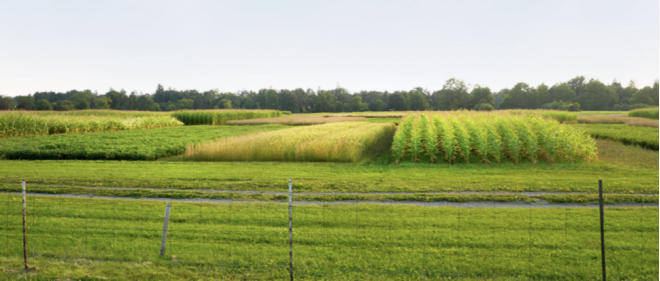Soil Science Research on the Central Experimental Farm
By Ed Gregorich, PhD
The Central Experimental Farm has played an important role in advancing Canadian agriculture through scientific research, including field experiments, since its establishment in 1886. Soil science studies are fundamental to understanding and improving agricultural practices and have always been a part of the research on the CEF.
The location of the CEF was strategically chosen because of the variety of soil types that are present. This variety allows researchers to conduct experiments on soils with different properties, making the results more widely applicable to agricultural regions across eastern Canada and more specifically to eastern Ontario and western Quebec. Because these are experiments in biological systems, their location (in terms of climate, soil type, and cropping system) is an important factor in making them unique and their results both useful and transferable.
Some of the soil experiments being conducted on the Farm have been running since the early 1990s and are thus considered long-term, among the longest running in Canada. These experiments have been designed to look at soil processes and crop growth, tillage management, nutrient cycling, and soil carbon dynamics. Long-term experiments are important because changes caused by tillage and crop rotations take a long time to manifest their effects on soil health, biodiversity, plant growth, and yields. It also takes years to assess and understand the effects of agricultural management practices on the wider environment, such as the emission of greenhouse gases and their effects on global climate. The data collected from long-term experiments that describe changes in crop yield or soil health become more reliable and more valuable the longer the experiment is conducted. These data contribute to the information farmers need to make wise management choices and are essential for validating the computer models that are used to make economic and environmental predictions related to farm production, which in turn guide policy decisions at every level of government.
One long-term experiment on the CEF is evaluating the effects of tillage, including no-till, on soil physical, biological, and chemical properties. Another looks at the effects of different rates of fertilizer application and different types of manure on plant growth and yield, as well as soil health. This systems- level understanding that these long- term studies is key to optimizing sustainable farming methods.
It would not be economically practical or scientifically viable to relocate the long-term field experiments to the city outskirts where there are fewer interests competing for the land, because this cannot be accomplished without resetting the research clock to zero and losing the accumulated data and knowledge gained over the years. The field studies being carried out
at the CEF and the extensive data they produce are a national treasure and a priceless scientific resource that is recognized and valued internationally. Many scientists around the world contribute to or build on these studies and use the results to frame their own research and develop agricultural policies.
Ed Gregorich is an Honorary Research Associate with Agriculture & AGRI-Food Canada with expertise in soil health and soil carbon dynamics. This article first appeared in Heritage Ottawa Newsletter, August 2024, Vol. 51, No. 3.
